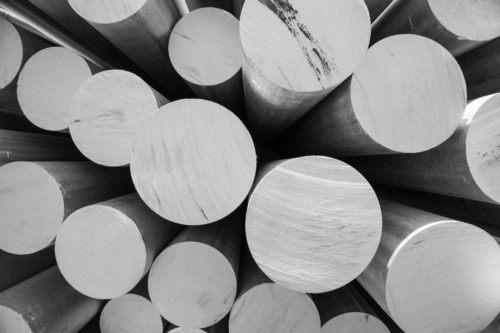The Best Guide To Alcast Company
The Best Guide To Alcast Company
Blog Article
Alcast Company Fundamentals Explained
Table of ContentsNot known Facts About Alcast CompanyTop Guidelines Of Alcast CompanyRumored Buzz on Alcast CompanyAlcast Company - An OverviewThe Ultimate Guide To Alcast CompanyThe smart Trick of Alcast Company That Nobody is Talking About
The subtle difference depends on the chemical content. Chemical Comparison of Cast Light weight aluminum Alloys Silicon promotes castability by lowering the alloy's melting temperature level and improving fluidness during casting. It plays a crucial duty in permitting intricate mold and mildews to be filled accurately. Furthermore, silicon adds to the alloy's stamina and put on resistance, making it valuable in applications where durability is essential, such as automobile parts and engine elements.It also improves the machinability of the alloy, making it simpler to refine into completed items. By doing this, iron adds to the total workability of light weight aluminum alloys. Copper enhances electrical conductivity, making it beneficial in electrical applications. It additionally improves rust resistance and includes in the alloy's total strength.
Manganese adds to the strength of light weight aluminum alloys and boosts workability (Casting Foundry). It is commonly made use of in wrought aluminum items like sheets, extrusions, and accounts. The existence of manganese aids in the alloy's formability and resistance to breaking during fabrication processes. Magnesium is a lightweight aspect that provides stamina and influence resistance to light weight aluminum alloys.
How Alcast Company can Save You Time, Stress, and Money.
Zinc boosts the castability of aluminum alloys and helps control the solidification process during spreading. It boosts the alloy's strength and firmness.

The key thermal conductivity, tensile toughness, yield toughness, and prolongation differ. Select suitable resources according to the efficiency of the target item produced. Amongst the above alloys, A356 has the highest possible thermal conductivity, and A380 and ADC12 have the least expensive. The tensile limit is the opposite. A360 has the most effective return toughness and the highest prolongation price.
A Biased View of Alcast Company

In precision casting, 6063 is fit for applications where complex geometries and high-quality surface area coatings are paramount. Instances include telecommunication units, where the alloy's premium formability permits smooth and aesthetically pleasing designs while maintaining architectural stability. In the Lights Solutions industry, precision-cast 6063 elements produce elegant and reliable illumination fixtures that require intricate forms and excellent thermal efficiency.
It leads to a better surface coating and much better rust resistance in A360. The A360 exhibits remarkable elongation, making it suitable for complicated and thin-walled elements. In precision spreading applications, A360 is fit for markets such as Customer Electronic Devices, Telecommunication, and Power Devices. Its boosted fluidness allows for complex, high-precision elements like smartphone cases and communication gadget housings.
Some Ideas on Alcast Company You Need To Know
Its unique homes make A360 a beneficial option for accuracy spreading in these markets, boosting product sturdiness and quality. Aluminum alloy 380, or A380, is a commonly used spreading alloy with a number of unique qualities. It uses excellent castability, making it a perfect selection for precision spreading. A380 exhibits great fluidity when molten, making certain intricate and detailed mold and mildews are properly recreated.
In precision casting, aluminum 413 shines in the Customer Electronics and Power Equipment industries. This alloy's exceptional rust resistance makes it a superb choice for outdoor applications, ensuring resilient, sturdy products in the mentioned sectors.
Not known Facts About Alcast Company
Once you have actually decided that the aluminum die casting procedure appropriates for your job, a crucial following action is choosing the most proper alloy. The aluminum alloy you pick will considerably affect both the casting procedure and the residential or commercial properties of the last product. Due to this, you must make your decision thoroughly and take an enlightened strategy.
Determining the most suitable light weight aluminum alloy for your application will certainly indicate evaluating a broad selection of attributes. The initial group addresses alloy characteristics that influence the production procedure.
The 45-Second Trick For Alcast Company
The alloy you select for die casting directly affects several aspects of the spreading process, like how very easy the alloy is to function with and if it is vulnerable to casting defects. Warm breaking, likewise referred to as solidification breaking, is a common die spreading defect for light weight aluminum alloys that can result in interior or surface-level tears or splits.
Specific light weight aluminum alloys are extra susceptible to warm cracking than others, and your choice must consider this. It can harm both the cast and the die, so you should look for alloys with high anti-soldering residential or commercial properties.
Rust resistance, which is currently a significant characteristic of light weight aluminum, can differ substantially from alloy to alloy and is an essential particular to consider depending upon the ecological problems your product will certainly be revealed to (Aluminum Castings). Put on resistance is one more residential or commercial property typically sought in aluminum items and can separate some alloys
Report this page